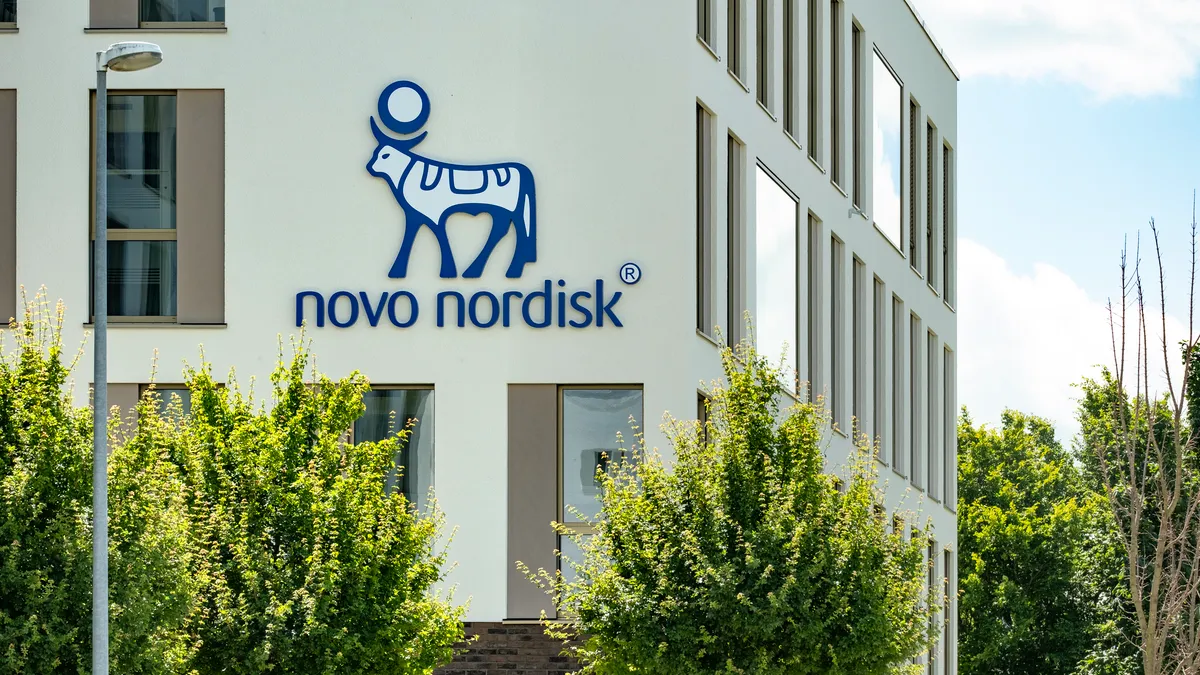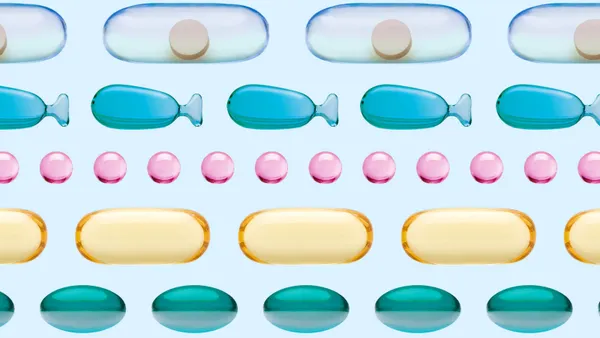All doses of Novo Nordisk's popular GLP-1 medicines Ozempic and Wegovy are available in the U.S. and being regularly shipped to wholesalers, the drugmaker confirmed Wednesday.
One dose form or another of both drugs, which respectively treat diabetes and obesity, has been in shortage since March 2022, according to a database maintained by the Food and Drug Administration. The database was updated Wednesday to reflect the drugs' new availability, although both remain listed.
In an emailed statement, Novo cautioned that, "even when a medication is available, patients may not always be able to immediately fill their prescription at a particular pharmacy." The statement added that people seeking to fill a prescription may experience this "variability" regardless of whether a drug is actively in shortage.
Demand for Ozempic and Wegovy has boomed, as the drugs' powerful ability to reduce weight has become better known. Novo has also shown that treatment with Wegovy can reduce the risk of heart attacks and stroke, while Ozempic can ease the risk of kidney disease. Both drugs contain the same active ingredient, semaglutide, but are given in different dose strengths and regimens.
Even as Novo has poured billions of dollars into increasing its manufacturing capacity, the company has until now been unable to keep up with demand.
“This update is a result of our significant investment in capacity and ongoing communication with the FDA. Our intentional approach to gradually increase supply into the U.S. market is working,” Novo said in its statement.
Novo competitor Eli Lilly has had a similar experience with its drugs Mounjaro and Zepbound, which also work by targeting the same gut hormone. All doses of the two medicines were marked as available on the FDA’s database back in early August, and the agency later removed the ingredient they both share, tirzepatide, from its shortage list.
But that decision was challenged by an organization representing compounding pharmacies, which have been able to make cheaper, knock-off versions of tirzepatide while it’s been in shortage. In response to a suit, the FDA said in mid-October that it would reevaluate its position, with a plan to file a status report by Nov. 21.
Lilly CEO David Ricks, speaking on an earnings call Wednesday, called the back-and-forth a risk for the agency.
“I can't really speculate too much what's going through the FDA's mind,” said Ricks. “But I think other commentators have mentioned that the longer this goes on, the more risk they have to their own regulatory framework.”
“My guess is the FDA is concerned about that and they want to win this case and they're putting their ducks in a row to do so,” he added.
The company’s earnings showed that, during the third quarter, sales of Mounjaro and Zepbound were much the same as they were in the second quarter, a slowdown Lilly said was due to wholesalers buying less supply.
Novo is scheduled to report earnings for the third quarter on Nov. 6.
Editor’s note: This story has been updated with executive commentary.













